Thanks to everyone who commented. The winner of a signed copy of Song of Scarabaeus is Barbara E! Barbara, please contact me at saracreasy@gmail.com with your postal address.
As writers and readers, how do we define the difference between the science fiction and paranormal genres? Both are “unreal” (in that they are fictional) and “speculative” (in that they extrapolate from existing ideas). The paranormal by definition breaks the laws of physics, but science fiction often does too (warp speed, anyone?).
I think the difference comes in what each genre needs to explain. For example, classic vampires can’t be exposed to sunlight without terrible consequences. Readers of paranormal fiction know this fact about vampires. If the writer chooses to contradict the convention by having her vampires run around the sunny beaches of Santa Barbara, readers expect a (paranormal) explanation: that old sunlight thing is a myth, the vampire has a magic ring, or this is a tribe of new improved vampires.
On the other hand, readers of science fiction base their expectations on the natural world. If a certain creature explodes into flames in sunlight, which contradicts what we know about the natural world, the writer needs to provide a (natural) explanation: the “vampire” has a medical condition such as a total lack of melanin, or, more exotically, the vamp’s unstable atoms are prone to decay when exposed to photons of a particular wavelength.
As readers we bring a stack of wonderful knowledge with us, drawn from mythology and the real world, saving the writer from having to describe and explain everything. But when a story contradicts that knowledge, often for interesting reasons of course, we want to know why!
In the paranormal stories you’ve enjoyed, did the writer deviate from standard mythology or stick with the tried and true? Could the vampires cross running water? Did the ghosts fall through the floor? Did the werewolves eat off silverware? As for science fiction, how convinced were you by the scientific explanations for events that seemed to contradict the laws of physics? Post your thoughts and I'll enter you into a draw to win a signed copy of my debut novel, Song of Scarabaeus. Contest ends Sunday 1st August at midnight and the winner will be listed at the top of this post.
- Sara Creasy
skip to main |
skip to sidebar

Speculative Fiction (Fantasy/Thriller/Sci-Fi/Urban Fantasy) for adults and teens.
A group of best-selling authors provide news, reviews and interviews from the darker, more speculative side of fiction.
Who We Are

Follow Us On Twitter!
Blog Archive
-
▼
2010
(155)
-
▼
July
(23)
- Explaining the unreal
- Paranormal? Let's get real
- What Would You Do...?
- Am I Cursed or Lucky?
- Love Triangles are Wrecktangles
- Why YA?
- Lessons learned from characters
- Guy Things That Girls Do.
- Book Trailers
- Blame it on the Wizard
- Hands-on Research
- Paranormal Goodies and Pics from RomCon2010
- Art Inspires Life -- Bucket Lists
- The Imagination of Youth
- Who doesn't love a quickie?
- Friday Musings
- three YA trends. and my Fury cover!
- Guardians of My Lair
- “What if?” Folklore as a Source
- Faith and Fantasy
- What's Your Sign?
- A Mish Mash of Sorts.....
- Making My Bow—& Why I Love Fantasy!
-
▼
July
(23)


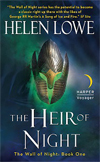
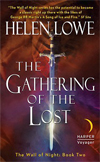
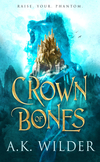
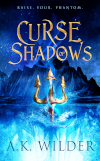
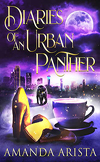
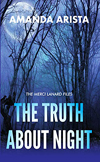

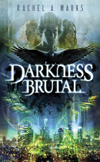
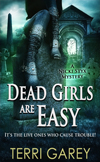
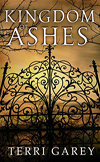
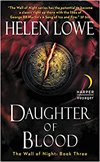
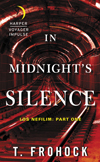
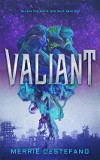
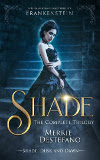
19 comments:
the cool thing about the series I read, everyone deviates from the normal with their paranormal characters. How they deviate is what makes them so fun to read. I will accept any explanation given cause in their world it is real so who am I to question it .
That's a really interesting thought, Sara, that it's in the explanation. Sometimes, the two of them connect. I remember Aussie author Cecilia Dart-Thornton talking about the flying horses in her first series. She couldn't believe herself that wings would be enough (the magical explanation) so needed something more. She ended up with a scientific explanation (repulsive metal in the horseshoes) which then required her to come up with further explanations as to how they could then land (attractive metal in the landing strip). So a fantasy ended up with scientific stuff.
In the paranormal stories I enjoy the most, the writers take what they want from the standard mythology and then make it their own with their own twists, such as vampires not needing to stay out of sunlight, or not needing an invitation to come into a house. In science fiction, as long as the explanations make some kind of sense to me, I'm not that worried about the laws of physics - I just enjoy the story.
Nicole, I remember Cecilia talking about that very thing, too - I think it was at the Melbourne Writers Festival a few years ago. I'm dealing with the same sort of issue myself right now - writing what feels like a fantasy story but I can't help including "scientific" explanations for what appears to be magical.
I like it when writers include a mediocum of science in their paranormal stories. For example, in most werewolf stories (like Carrie Vaughn's and Patricia Briggs'), there is no real scientific way to explain why these people turn into wolves other than it's an obvious virus, but conservation of mass is still observed, which is why they make HUGE wolves.
Ilona Adnrews' vampires are turly icky and a new take on vampires. They are reanimated corpses that are controlled by necromancers but not zombies, which are something different entirely.
@Sara--Great Post!!! I love your explanation!
I'm definitely not against scientific explanations, but I find myself more often reading the books with the magic explanations, even though I don't consciously seek it out. It feels like there is a lot more blending of explanations lately--like sometimes it's just to easy to say "it's magic," but sometimes all the technical stuff can be very cumbersome (why I still have bad memories of Jules Verne from 8th grade)
As a reader and a writer, I'm willing to go along with the story, as long as I don't feel "cheated" or get "bogged down" with stuff I don't care about. It has to be believable to certain extent, and fit with the story.
--A couple months ago, I wrote a scene that I really liked--my character was absolutely soaking because of torrential downpours of rain. When I woke up, I couldn't stop thinking, why didn't she just wear leather--I only had like 10 pages, and I'm already wondering if I have to invent a whole mythology for her based on her choice of wardrobe. And I can't really cut my only scene...Because I had liked it so much, I decided to set it aside and come back to it again later. I've been working through it, but it definitely makes me curious about where other authors confront these kind of questions, and where they go to explain them.
p.s. thanks for the contest!!! Song of Scarabaeus looks REALLY good!!!
I prefer it when the author steps away from the "norm" and takes their own twist on whatever it is they happen to be writing. It makes the story more interesting.
Does it count to say that I read series that have both? I love to see a new spin on vamps, but I enjoy the traditional as well. If the explanation seems plausable enought I know I'll buy into it. Like saying vamps can only be killed with wooden stake through the heart.. That's a myth that started because when people started to hunt vamps, all they had was wooden weapons.
A little bit of both happen actually. Some authors stick to the traditional vampire, where he can't even go out in daylight and others deviate from that norm. In instances like that I like it, I like that the vampire doesn't have a lot of restrictions.
There have been similar instances with werewolves and their need for the full moon to change them, others can change at will. And even the way they change is different too, sometimes it's poof! And other times they have to go through the shift and it can be a little painful.
i like it when the author takes a different twist on a "traditional" idea. I can't remember which series it was but the theory that vampires came from Cain/Abel was a novel idea. These twists are what makes it interesting otherwise the genre might get stale because you would already know everything about the paranormal subject such as vampires.
Just my two cents.
I haven't read the Cain/Abel vampire series, but I have heard the myth.
--there's a legend of The Wandering Jew--they also use it in the poem The Rime of the Ancient Mariner--basically after Cain kills Abel, God marks Cain (known as the Mark of Cain), and curses him to wander the earth for all eternity. And because of the Mark, he's no longer acceptable company for people to keep. One of the off-shoots of this legend is it turns Cain into the 1st vampire, never being able to die and be at peace, or be part of a community again, and the story is kind of embellished from there
I think it depends. You can go tried and true and still put a twist into the whys. I also love delving into a whole new world full of new myths. I guess it just depends on the story and writer. Sorry, I'm sure that didn't answer it at all. :)
Very interesting post! And I like your explanations as well.
I've read more paranormal then science fiction and most paranormals I've read the authors added their own little twist here and there and I enjoy that. I will accept any reason for it as long as it flows with the story. I like to know where these, say warriors for example, came from. How they got to be with the human race, ect. I think explanations make the story more believable and helps you get into that world better if that makes sense. =)Whether they be scientific or mythical.
Jeaniene Frost's Night Huntress series uses the Cain origins if I'm not mistaking. I like how she veers from the conventional in her series.
I don't read too much paranormal, but the one book that I can recall at least, that I read with supernatural, it was a mix of both. There were some tried rules that stuck to the mythology and other rules or actions that didn't.
Count me in for the contest for sure!
I like it when paranomal suthors take somthing from myth and legend and twist it to make it there own. If they didn't we would all be reading the same stories over and over again.
I like to be surprised so better if an author takes standard mythology and deviates the characters in her/his own way. I read both books with standard mithology and books with deviated characters of standard mithology, even if right now I prefer the second kind.
Thank you for the interesting post. Please enter me in the giveaway only if it is international. :)
Giada M.
fabgiada (at) gmail (dot) com
I like a little bit of both. I like to read new variations of myths and unique stories, but I don't mind some tradition thrown in. It's alot of fun to read whole new stories though, and get to see different stuff.
I like both, the traditional and those that deviate from the standard mythology.
congrats to the winner!!!
Post a Comment